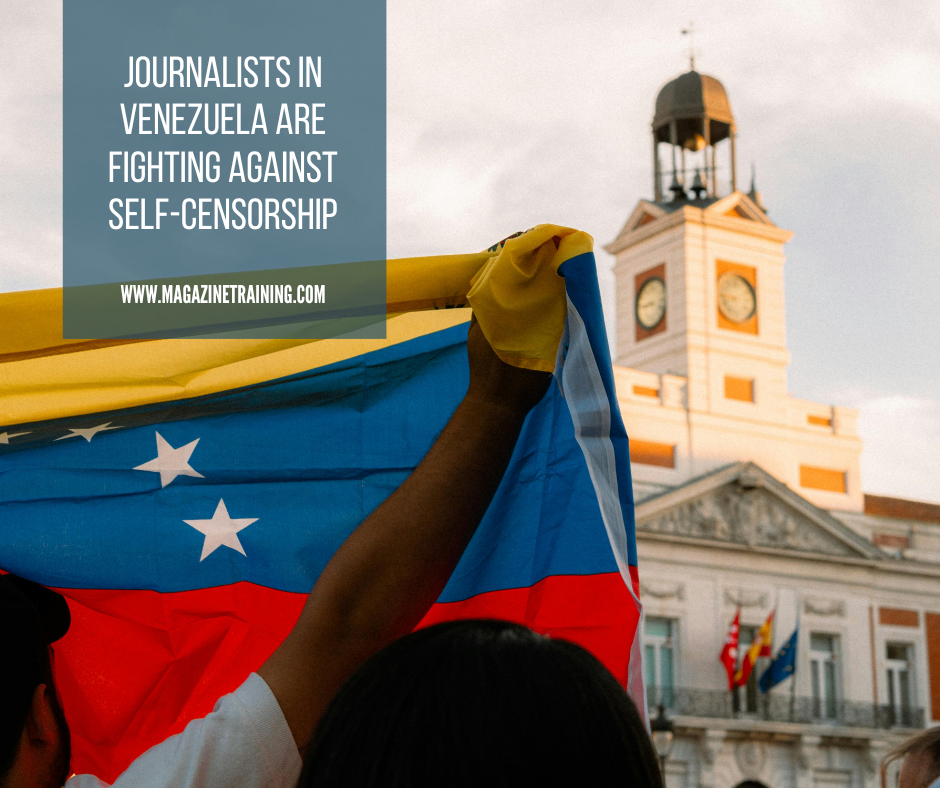
A surveillance environment in Venezuela has led to the beginning of doubt against free expression – the beginning of self-censorship.
Venezuelan journalists have had to find a way to reinvent themselves between censorship, threats, misinformation and media sanctions.
“Today, there is not a single large open national media outlet that has editorial freedom,” said Fabiola Colmenares, content director of the digital channel VPItv.
Venezolanos por la Información TV, best known as VPItv is a Venezuelan online television channel founded in 2015 by Leonardo Trechi, Freddy Wetter and Fabiola Colmenares. “It arose from the circumstances,” Colmenares said. Many Venezuelan media outlets have migrated to the digital world to battle on the front line against censorship in Venezuela.
Watch this on-demand workshop on “The power of what we do and do not say.”
It is a daily fight against a regime that always finds a way to place obstacles for those trying to tell the truth. Independent digital media outlets are victims of blockages by the country’s internet providers. Recently El Nacional, one of the leading Venezuelan newspapers, was added to the list of blocked newspapers on the web.
The battle hasn’t been easy. Not even for VPITv, which, despite it being an American-based company that follows YouTube and digital media guidelines, has experienced the regime’s attacks. “In January 2021, they showed us that we are vulnerable, they tore us apart, they took away all our equipment, and of those 200 employees we had, it was reduced by half,” Colmenares said. “Those who stay are the ones who bravely keep reporting [from Venezuela].”
Self-censorship
Colmenares describes journalism as one of Venezuela’s most dangerous and difficult professions to practice. Not only because of regime threats and attacks, but it has brought to life a second enemy to the profession: self-censorship.
“It is very difficult not to censor yourself, not because of you, but because of the news outlet in which you work and because of being very careful about what you say,” VPItv reporter Andreina Ramos said.
Ramos, who has many years of working in the field, says the pressure exerted by the government on the media increases as the years go by. Swallowing tear gas in protests, confrontations with paramilitary groups and the national guard, stolen material and work equipment and threats from the regime are some of the challenges reporters face in the country.
Ramos has faced many of these challenges. While covering an event of Interim Venezuelan President Juan Guaidó in 2020, an attack against Guaidó went viral.
After the event, Diosdado Cabello, a current congressman and former president of the National Assembly of Venezuela, showed a picture of Ramos on his TV program, Con el Mazo Dando, calling her a terrorist.
“This caused the alarms to go off with VPItv, and they decided to lock me up for protection because something could have happened to me. I was locked up from Feb. 20 until the pandemic started,” Ramos said. Now, she is part of a group of journalists receiving protection from the Inter-American Court of Human Rights.
by
Related posts
Magazine Training International’s mission is to encourage, strengthen, and provide training and resources to Christian magazine publishers as they seek to build the church and reach their societies for Christ.

